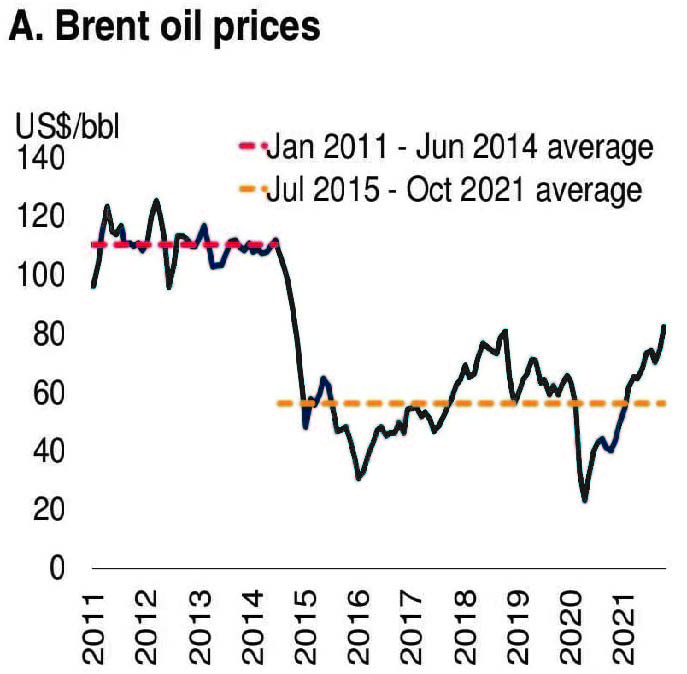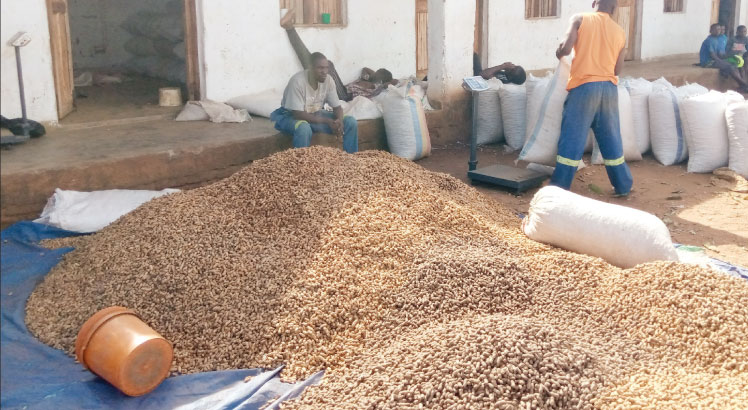Mera uncertain on fuel price forecast
Malawi Energy Regulatory Authority (Mera) says it may not be able to forecast local fuel pump prices in months or years to come despite a continued rise of oil prices on the global market.
Mera’s statement follows a World Bank report indicating that global oil prices are projected to rise in 2022 after surging by more than 80 percent in 2021, a situation the bank says poses major risks to inflation in developing countries, including Malawi, in the near-term.

In an interview on Sunday, Mera spokesperson Fitina Khonje said a better projection for the local pump prices would also need to take into account exchange rate-related projections and landing costs.
She said: “We may not be able to forecast what will be the prices in the months or years to come. The price determinations are based on actuals not projections.
“According to the automatic pricing mechanism, pump prices are adjusted when changes in the landed costs of petroleum products are above five percent.”
In its latest Commodity Markets Outlook published on Thursday, the Bretton Woods institution said the situation is unlikely to retreat until 2023.
Average crude prices are expected to end the year at $70 (K57 000) a barrel, about 70 percent higher than in 2020, according to the report.
In a statement accompanying the report,World Bank chief economist and director of World Bank Prospects Group Ayhan Kose said if sustained, the surge in oil prices could also affect growth in oil-importing countries.
He said: “The sharp rebound in commodity prices is turning out to be more pronounced than previously projected.
“Recent volatility in prices may complicate policy choices as countries recover from last year’s global recession.”
Oil prices in recent weeks have surged above $80 (K65 000) a barrel, the highest point in years as economies re-open following the pandemic shutdowns and amid shipping bottlenecks.
Over the past 12 months, global oil prices have rallied on the back of a back-on-its-feet world economy as Covid-19 infections fall, lockdowns fade and industrial output surges with more people returning to work.
These global developments compelled Mera to raise pump prices by 22.8 percent on average earlier this month.
Effectively, petrol went up by 27.89 percent to K1 150 from K899.20, diesel went up by 24.72 percent from K898 to K1 220 while paraffin rose by 15.79 percent to K833.20 from K719.60.
Meanwhile, prices of goods and services have been on the rise, with September inflation rate rising by 0.5 percentage points to 8.9 percent.
Consumers Association of Malawi executive director John Kapito said in an inteview on Sunday that the increased prices of fuel will have a negative impact on consumers’ cost of living as prices of essential goods and services will go up.
He said: “We are requesting the Ministry of Trade to put in place market inspection and monitoring systems to ensure that unscrupulous traders do not increase their prices unfairly.
“The Ministry of Trade or its agencies should continuously publish price changes of essential goods and services through various media outlets.”
Energy expert Grain Malunga, who is also former minister of Energy, observed in an interview that the domestic market will be affected due to rising global oil prices and the depreciation of the kwacha against the dollar will worsen the situation.
“What we need to do is review those fuel levies to cushion domestic prices,” he said.





